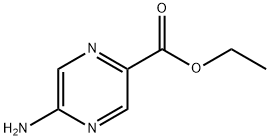Hi, I'd like to ask—Where can I buy hydrochloric acid, both online and offline? Are there any restrictions on purchasing it, such as age limits or the need to provide a valid reason for purchase? Do I need a special license or certificate to buy it, especially for large quantities? What are the reliable channels to buy it, and how to distinguish between genuine and fake products? Are there any precautions for transportation after purchase? Thanks!
Where Can I Purchase Hydrochloric Acid and What Are the Related Rules?
Related Encyclopedia

- 7647-01-0
- ClH
- 36.46
- All (25)
- China (20)
- (25)

- 101752-05-0
- CH5ClO
- 68.50280
- All (0)
- China (0)
- (0)

- 12015-40-6
- Cl2H2
- 71.91390
- All (0)
- China (0)
- (0)
- 19400-49-8
- ClH8O3
- 90.50680
- All (0)
- China (0)
- (0)
- 42348-42-5
- ClH2+
- 38.98180
- All (0)
- China (0)
- (0)

- 64990-51-8
- C4H9ClO2
- 124.56600
- All (0)
- China (0)
- (0)
- 160208-71-9
- CH3Cl3
- 121.39400
- All (0)
- China (0)
- (0)
- 1251166-15-0
- C5H5ClF3N3S
- 231.62700
- All (0)
- China (0)
- (0)
- 400090-61-1
- C5H11ClN2
- 134.60700
- All (0)
- China (0)
- (0)
- 1311411-65-0
- C7H16ClNO
- 165.66100
- All (0)
- China (0)
- (0)
Related Products More >
-
- 7647-01-0
- CNY 2000.0000
- 1ton
-
- 7647-01-0
- Request For Quotation
- 1ton
-
- 7647-01-0
- Request For Quotation
- 25kg
-
- 7647-01-0
- Request For Quotation
- 1kg
-
- 7647-01-0
- Request For Quotation
- 25kg
-
- 7647-01-0
- Request For Quotation
- 1ton




Purchasing hydrochloric acid comes with restrictions due to its corrosive and potentially hazardous nature. Most places require buyers to be of legal age, typically 18 or 21. Sellers often ask for a valid reason, such as industrial use, laboratory research, or educational purposes. For large quantities, a special license or certificate is usually needed, as it may be classified as a regulated substance to prevent misuse.
Reliable channels include established chemical suppliers with proper certifications and a track record of合规 sales. To check authenticity, look for clear labeling with concentration, safety information, and manufacturer details. Genuine products often come with material safety data sheets. Avoid sources with vague descriptions or unclear origins.
Transportation requires caution. It must be stored in corrosion-resistant containers, usually plastic or glass-lined, and kept upright to prevent leaks. During transit, it should be separated from incompatible substances like bases or metals. Following local regulations for hazardous material transport is essential to avoid accidents or legal issues.
You might need to show identification to prove you’re of legal age, often 18 or older. Sellers usually ask for a reason, like educational use or industrial purposes. For large quantities, a special permit or documentation showing legitimate need is often required, depending on local regulations.
Reliable channels include established chemical distributors with good reviews and clear safety information. To check authenticity, look for proper labeling with concentration, safety warnings, and manufacturer details. Avoid vague or unlabeled products.
Transporting it requires following safety guidelines. Use sealed, acid-resistant containers, and keep it away from incompatible substances like bases or metals. Ensure the container is secure to prevent leaks during movement.
For industrial applications, bulk purchases are commonly arranged through chemical distributors like Brenntag or Univar Solutions. These transactions typically require the buyer to provide documentation demonstrating proper storage facilities and handling procedures. Many jurisdictions mandate that purchasers maintain hazardous material handling certifications when buying hydrochloric acid in quantities exceeding certain thresholds, often 55 gallons or more.
Consumer-grade hydrochloric acid, commonly labeled as muriatic acid, is widely available through retail hardware stores such as Home Depot, Lowe's, or Ace Hardware. These products typically contain 10-30% hydrochloric acid and are packaged in plastic containers with child-resistant closures. Retail purchases are generally unrestricted, though some stores may implement age verification policies.
Online marketplaces present unique considerations. Reputable scientific supply websites maintain strict verification protocols, requiring customers to create verified accounts and provide documentation for large orders. Consumer marketplaces like Amazon carry muriatic acid from various brands, but purchasers should carefully examine seller ratings and product reviews to ensure authenticity. Counterfeit products occasionally appear on these platforms, often distinguished by unusually low prices or missing safety data sheets.
Transportation regulations governing hydrochloric acid fall under hazardous materials guidelines. Ground transportation typically requires proper labeling, packaging in UN-rated containers, and completion of shipping manifests. Air transport is generally prohibited for concentrated solutions due to volatility risks. Storage recommendations emphasize keeping containers tightly sealed in well-ventilated areas away from incompatible substances like bases and oxidizing agents.
Online purchasing offers greater convenience and variety, with options ranging from e-commerce platforms like Amazon and eBay to specialized chemical distributors such as Sigma-Aldrich and Fisher Scientific. Industrial suppliers like Brenntag and Univar cater to bulk buyers, though they typically require registration and verification of intended use. When buying online, it's crucial to verify the seller's credibility through customer reviews and ensure the product meets purity standards. Reputable suppliers provide detailed product specifications, including concentration, hazard warnings, and storage instructions, helping buyers distinguish genuine products from counterfeit ones.
Regulations surrounding hydrochloric acid purchases vary by jurisdiction. Many places impose age restrictions, typically requiring buyers to be at least 18 or 21 years old. Purchases of concentrated acid often necessitate explaining the intended use, with some suppliers refusing sales for unauthorized purposes. Large-quantity transactions may trigger additional scrutiny, with authorities requiring licenses or permits, especially for commercial or industrial applications. Export and import regulations are particularly stringent due to hydrochloric acid's classification as a hazardous material, with cross-border shipments often subject to international treaties like the Rotterdam Convention.
Transporting hydrochloric acid after purchase demands careful attention to safety. The acid must be packaged in corrosion-resistant containers, typically high-density polyethylene (HDPE) bottles or drums, with secure sealing to prevent leaks. Shipping regulations classify hydrochloric acid as a hazardous material, restricting its transport via air and imposing strict guidelines for ground shipments. Ground transportation requires compliance with Department of Transportation (DOT) regulations in the U.S. or equivalent agencies in other countries, mandating proper labeling, documentation, and vehicle specifications. Upon delivery, hydrochloric acid should be stored in a cool, ventilated area away from incompatible substances like bases, metals, and organic materials. Secondary containment measures, such as acid-resistant trays, are recommended to mitigate spill risks.
Understanding these purchasing and handling guidelines ensures safe and legal acquisition of hydrochloric acid for any intended purpose, whether household, laboratory, or industrial. Always consult local regulations and supplier requirements before proceeding with a purchase.